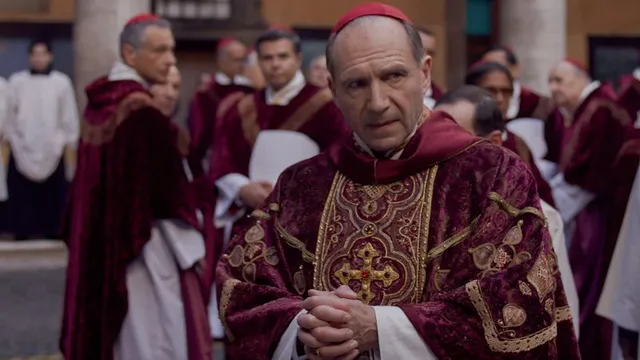
Pope Francis died, raising questions about the next papal selection
2025-04-26 00:00- Pope Francis passed away on Monday, initiating the process to elect the new pontiff.
- Experts are considering candidates from Africa and Asia due to the growth of Catholic populations there.
- The outcome of the conclave remains unpredictable, with a conversation around continuing Pope Francis's legacy or shifting towards a more conservative stance.
Express your sentiment!
Insights
Following the death of Pope Francis on Monday at the age of 88, the Catholic Church is poised to enter a significant period of transition as the selection process for the 267th pontiff begins. Pope Francis, who was elected in 2013, made history by being the first Latin American pope and the first head of the Roman Catholic Church born outside of Europe in over a thousand years. His papacy marked a notable shift toward inclusivity and engagement with global issues, particularly those affecting the poor and marginalized, with a focus on making the Church more representative of its growing congregations in the Global South. Experts suggest that the selection of the next pope could reflect the changing dynamics within the Church, especially concerning the fast-growing Catholic populations in Africa and Asia. Bruce Morrill from Vanderbilt University indicates that Cardinal Luis Antonio Gokim Tagle from the Philippines, known as the "Asian Francis," could be a viable candidate to continue Pope Francis’s legacy and priorities. However, the odds appear to be against Africa producing the next pope, despite its rapid growth in Catholic membership. The conclave will be influenced significantly by the voting cardinals, as Pope Francis appointed 108 of the 135 eligible cardinals. Many of these cardinals come from countries outside of Europe, suggesting that the next papal candidate could emerge from either a more conservative background or continue the progressive stance established by Francis. Analysts note that the historical lack of African representation in the papacy and the presence of entrenched Eurocentric biases could hinder the selection of an African candidate, even if it may seem overdue. Ultimately, the election of the next pope will be a moment of reflection and decision for the Catholic Church as it navigates leadership that more closely aligns with the demographic realities of its followers worldwide. The Church faces the pressing challenge of addressing global issues and maintaining unity among diverse communities while carrying the legacy of Pope Francis forward.
Contexts
The history of the papacy is a complex and fascinating subject that spans nearly two millennia. It begins with the Apostle Peter, who is often regarded as the first pope, with his leadership role in the early Christian community in Rome. Over the centuries, the papacy evolved, not only as a religious authority but also as a significant political power within Europe. The establishment of papal states, the involvement in various political intrigues, and the role of popes during the Reformation all play critical roles in shaping the institution of the papacy. Through events such as the Gregorian Reforms and the Avignon Papacy, the status of the pope has fluctuated, often reflecting broader socio-political contexts. The history of the papacy illustrates the struggle between spiritual authority and temporal power and highlights the papacy's adaptability to changing historical circumstances. In our examination of African popes, we find a distinct yet often overshadowed aspect of papal history. Historically, only a few popes are recognized as having African origins, most notably Pope Saint Victor I, who served in the 2nd century, and Pope Saint Miltiades, who led the Church during the early 4th century. These African popes held significant sway over early Christianity, particularly in the context of the Roman Empire's expansion. Their leadership is a crucial reminder of the not-so-distant past when Africa played a vital role in the establishment and dissemination of Christian doctrine. Moreover, these early popes are instrumental in contributing to the shaping of church practices and theology that still resonate today. The representation of African popes in the history of Christianity speaks volumes about the evolution of the Church’s demographics and cultural identity. As the Church expanded, the narratives surrounding African leadership were often marginalized, overshadowed by the dominant Eurocentric historical perspectives. Modern scholarship increasingly recognizes the importance of these figures and seeks to highlight their contributions, contributing to a richer understanding of the Church’s history. This re-examination not only acknowledges the value of inclusivity in historical narratives but also has the potential to inspire a more diverse outlook on leadership within the Church today. In recent years, the papacy has been led by representatives from various parts of the world, reflecting a broader, more inclusive global Church. The discussions around African popes and their representation extend beyond mere historical acknowledgment; they prompt a critical discourse on how the contemporary Church can honor its diverse roots while embracing pluralism. As the Church navigates modern challenges, the legacies of its African popes remind us of the strength found in diversity and the importance of embracing all parts of its historical tapestry. Recognizing these figures is not only a matter of justice and equity but also a pathway to a more holistic understanding of the Catholic Church's rich historical and cultural narrative.